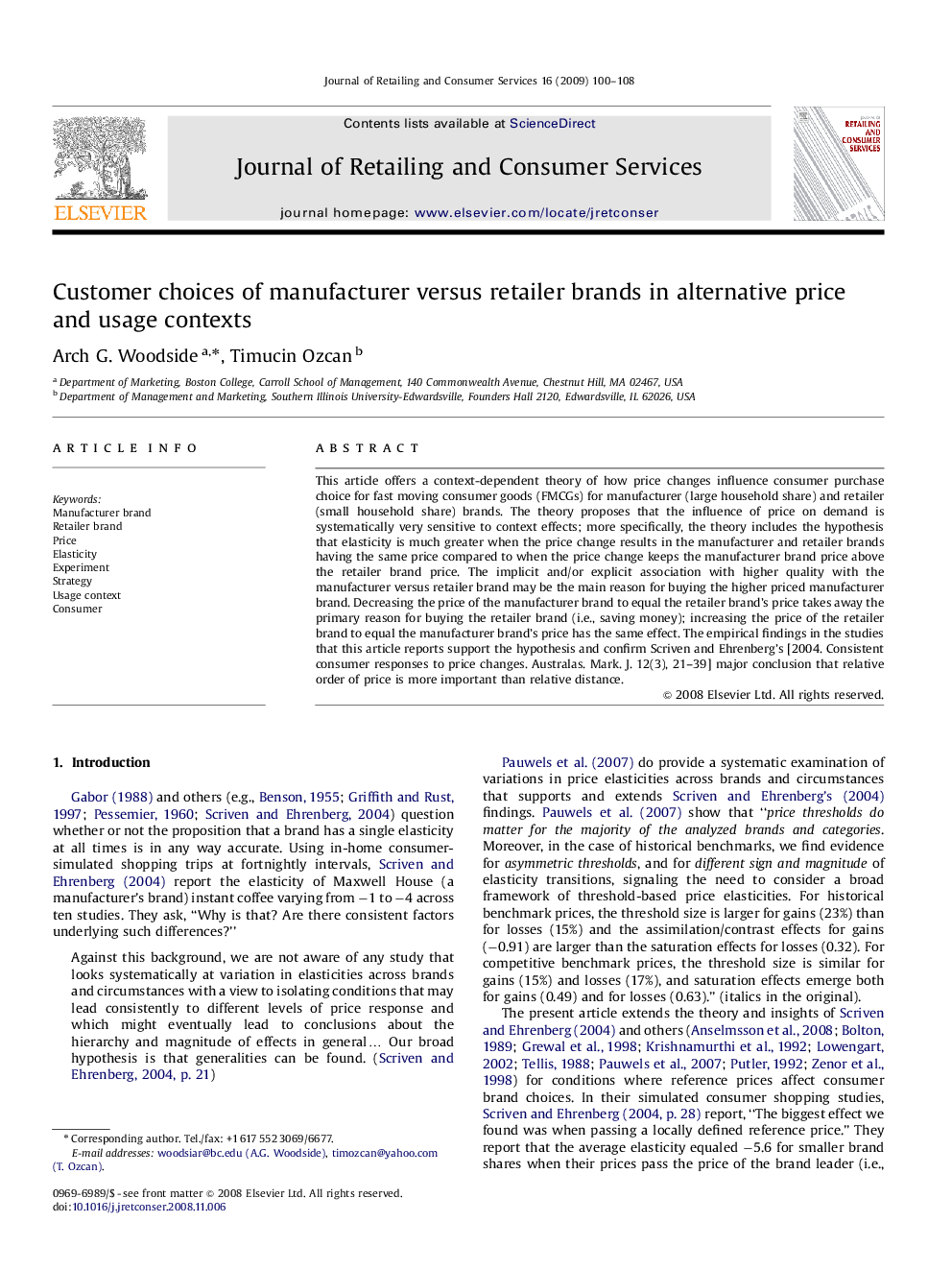| Article ID | Journal | Published Year | Pages | File Type |
|---|---|---|---|---|
| 1029531 | Journal of Retailing and Consumer Services | 2009 | 9 Pages |
This article offers a context-dependent theory of how price changes influence consumer purchase choice for fast moving consumer goods (FMCGs) for manufacturer (large household share) and retailer (small household share) brands. The theory proposes that the influence of price on demand is systematically very sensitive to context effects; more specifically, the theory includes the hypothesis that elasticity is much greater when the price change results in the manufacturer and retailer brands having the same price compared to when the price change keeps the manufacturer brand price above the retailer brand price. The implicit and/or explicit association with higher quality with the manufacturer versus retailer brand may be the main reason for buying the higher priced manufacturer brand. Decreasing the price of the manufacturer brand to equal the retailer brand's price takes away the primary reason for buying the retailer brand (i.e., saving money); increasing the price of the retailer brand to equal the manufacturer brand's price has the same effect. The empirical findings in the studies that this article reports support the hypothesis and confirm Scriven and Ehrenberg's [2004. Consistent consumer responses to price changes. Australas. Mark. J. 12(3), 21–39] major conclusion that relative order of price is more important than relative distance.
